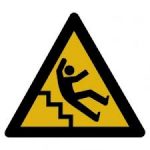Published in the Coffs Coast Advocate on 2 August 2014.
 Jill visits her local supermarket to attend to her usual weekly shop. She walks down one of the aisles and slips on a substance on the floor. Unfortunately she falls over and injures her knee.
Jill visits her local supermarket to attend to her usual weekly shop. She walks down one of the aisles and slips on a substance on the floor. Unfortunately she falls over and injures her knee.
Jill notices that there is a substance on the floor that appears to be green detergent. Jill is helped to her feet by a young woman who says to her that she noticed the green liquid on the floor around 5 minutes ago and that she informed the staff at the supermarket that the substance was on the floor.
Jill visits her doctor soon after the incident who tells her that she has a fairly severe injury to her knee which may require surgery.
Jill contacts her solicitor who informs her that in these types of cases, making a claim can be very difficult because in most situations, the supermarket can establish that they have a “system of cleaning” which they adhere to and it is not necessarily the supermarket’s duty to follow people around in anticipation of a spill.
The solicitor tells Jill however, that as the spill was brought to the supermarket’s notice by the person who assisted Jill in getting up off the floor, that the supermarket could be held liable in these circumstances.
When Jill’s injury “stabilizes”, she discovers that she will require a total knee replacement.
Jill’s solicitor makes a claim on her behalf for medical expenses, paid domestic assistance in the past and future and also for non-economic loss (which is damages for pain and suffering and loss of enjoyment of life).
Her solicitor reviews the medical evidence and advises Jill that her injury would exceed the threshold of 15% of a “most extreme case” and that her injury would likely amount to 26% which would qualify Jill for non-economic loss damages in the sum of $44,000.
Fortunately, after negotiations between Jill’s solicitor and the supermarket’s insurer, the matter settles.
If the case had not settled, Jill would need to commence proceedings before the limitation period of 3 years from the date when the cause of action is discoverable, expires.





